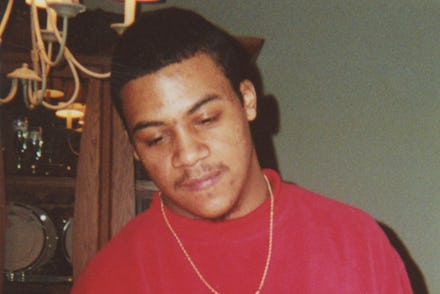A hate crime featured in 'Unsolved Mysteries' is one step closer to being solved

Investigators may be one step closer to solving a 16-year-old cold case featured on the Netflix true-crime docu-series Unsolved Mysteries. On Tuesday, crews exhumed the body of Alonzo Brooks, the 24-year-old Black man who went missing in rural Kansas in 2004 and whose death has been labeled a “hate crime” by the FBI. While there’s no word on what tips might’ve led the feds to reexamine Brooks’s body for fresh clues, the move gives his family hope that officials are following a credible lead and justice may be belatedly served.
Terry Dunn Meurer, the creator of Unsolved Mysteries, says the interest in Brooks’s case proves what a potent force the series is in pop culture. “The goal of the show is to always solve a mystery and we have a lot of people out there that are really trying to do that,” Meurer told local Kansas NBC affiliate KSNT. “It’s a case that caught our attention because it was so mysterious in how Alonzo disappeared and the fact that his body was found a month later,” she added.
“No Ride Home,” the episode of Unsolved Mysteries concerning Brooks’s murder, examines the murky details surrounding his disappearance. In April 2004, he was one of few people of color at a house party in La Cygne, Kansas; witnesses described the crowd as mostly “white, redneck” types. There was a miscommunication about which of Brooks’s friends was supposed to give him a ride that night. The 24-year-old was left stranded and never made it home. Brooks’s boots and hat were found the next day, across the road from where the party had been, but his body wasn’t discovered for another month, badly decomposed in a nearby stream.
Brooks’s family and friends felt certain he didn’t commit suicide or accidentally drown — they believed he was murdered. Furthermore, Brooks’s body was found in a wooded area that was searched repeatedly by local authorities in the weeks after his disappearance. His family suspects the body was moved there shortly before they launched their own search and promptly found Brooks’s remains on May 1.
Meurer told KSNT she was thrilled when the FBI reopened its investigation into Brooks’s death and thinks the decision to reexamine his body is positive news. “We’re hopeful that that means there’s something that the investigation hopes to find through doing that,” she said. “Exhuming a body is not something you just do casually.”
Brooks’s family held a watch party in Topeka, Kansas, when Unsolved Mysteries debuted. His mother, Maria Ramirez, told KSNT she felt optimistic the documentary would lead to justice being served. “I hope that it will let the people out there know that we want answers and we need answers now,” Ramirez said at the time. ”I hope it just gets around to everybody out there.”